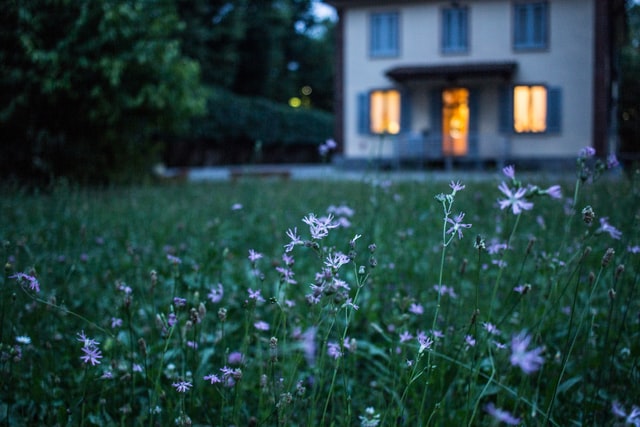If you’ve just moved into a new home in a new neighborhood, you might be feeling a little unsettled. This is completely normal. Humans haven’t survived as long as they have because they ignored their feelings of insecurity.
 This being said, you might be wondering what you can do to help keep your home and the people within it safe as everyone gets acclimatized to their new environment. The following will explore seven safety tips for new homeowners, but of course, these tips also apply to people who have lived in their homes for a while.
This being said, you might be wondering what you can do to help keep your home and the people within it safe as everyone gets acclimatized to their new environment. The following will explore seven safety tips for new homeowners, but of course, these tips also apply to people who have lived in their homes for a while.
Before diving in, it is critical that if you have any reason at all to believe that you, a member of your household, or your property has been targeted for a crime, you need to reach out to the local authorities. Yes, the following tips can help keep your home safe, but they don’t replace the role of law enforcement if and when it’s needed.
Sit With Your Feelings Of Unsafety
One of the most important steps in securing your home is to take a moment to sit with any feelings of unsafety you have. If these feelings are ignored, they’re going to get louder and might interfere with your daily life.
It’s important to note that these feelings don’t come from anywhere. Something has activated them. It’s very common in modern society to brush off feelings of unsafety by simply saying: I have anxiety, and shrugging it off as something you’re going to have to deal with indefinitely.
This is an extremely unhealthy, unhelpful, and unproductive approach. It doesn’t matter if someone else would feel safe in a given situation; if you don’t feel safe, it’s a problem. Full stop.
You might want to journal or speak to a friend or partner about where you feel like these feelings stem. It might be as simple as you don’t like how the door sometimes resists locking.
It might be that the general state of the world is frightening. It’s good to express the sources of your fears. Circle any of the causes that you have control over and work on those first. Secondly, seek out protective measures for the causes that you cannot control.
Dangerous Damages
If there is anything in your home that needs repairing and will be dangerous until it is repaired, focus on getting things in order. Broken window panes, stairs without railings, or any other home problems that could cause harm should be dealt with as soon as possible.
RELATED: 8 Safety Hazards at Home You Might Not Be Aware Of
Understand Burglary Deterrents
If you do your research, you’ll come across a whole host of things you can do at home to help reduce the chances of your home being selected for a burglary. The top three deterrents are having a dog, having a car parked in the driveway, or having music or television playing inside.
Other deterrents include alarm systems, trimmed hedges, and minimal trees and fencing (burglars look for homes that cannot be seen into as there’s less chance someone will witness them working). Ensuring some burglary deterrents are present in your home can help you feel a lot safer.
Related: Useful Tips On How To Ensure Your House Is Well-secured & How To Make Sure That Your House And Your Yard Are Safe
Weatherproofing
Depending on where you live, you might find that extreme weather puts your home or your household at risk. Take the time to research steps that can help protect your home from all relevant natural forces.
Related: How To Save Energy in New Construction
Door Reinforcement
The door is an integral part of your home’s safety, and so taking time to reinforce it can improve your safety. Specialists at www.bestsurvival.org have reviewed a ton of door reinforcement options.
At the bare minimum, make sure your door is sturdy and has a solid lock on it (deadbolts are far superior to handle locks, which can be picked much easier by a professional).
Related: Standard Door Size: A Comprehensive Guide
Food Security
One rarely mentioned source of unsafety in the home is food security. If the past few years have taught us anything, it’s that life is unpredictable.
Many people find their feelings of safety are increased if they include an emphasis on food security at home. This might mean buying an extra cut of meat each time you grocery shop and leaving it in the freezer.
It might mean picking up extra pickled vegetables, rice and dried beans and storing them in that cupboard you never use.
Over time, your little stockpile will grow, and this can massively contribute to feeling more secure in your own home as you know that if some terrible weather problem were to occur or if something insane happens at work, you have enough food to keep yourself fed while you figure out what to do next.
Related: What Medications And Emergency Items You Must Have At Home? Find Out Here
To summarize, there are a lot of things you can do to help improve the safety of your new home. Again, it’s important not to ignore feelings of unsafety; even if you don’t feel like it, you’re an animal, and you have animal instincts.